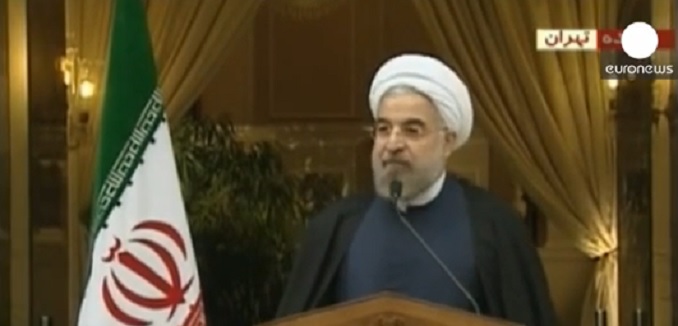The Jerusalem Post described over the weekend how the Joint Plan of Action (JPA) announced in Geneva between Iran and the P5+1 global powers has “opened the investment floodgates for Western companies seeking to capitalize on a new business environment in Iran,” the latest in what has become a stream of analysis suggesting that the financial relief provided to Iran under the JPA has triggered a feeding frenzy of entities seeking to be the first – or at the very least, not the last – to re-enter Iran’s markets.
Prof. Gerald M. Steinberg, a political scientist at Bar-Ilan University, said, “After Geneva, and without any significant change in Iranian behavior, the gold rush is on to resume business as usual.” “The claims made by President Obama and European leaders to the effect that they can simply restore sanctions whenever the Iranian leaders resume production of nuclear weapons looks increasingly hollow.” He added, “If the sanctions continue to unravel, the last resort for stopping Iran is a military operation that Israel, the US and Europe have long sought to avoid.”
Analysis published last week in Der Spiegel noted that “although none of the sanctions have been lifted, droves of Western business people are already flocking to Tehran.” A week before that the Washington Post reported that the U.A.E. was scrambling to co-develop energy resources with Iran. Earlier in December Patrick Blain, president of the International Organization of Motor Vehicle Manufacturers, predicted that “international investors are expected to re-enter Iran’s market soon.” For its part the Jerusalem Post quoted Bar-Ilan University professor Gerald M. Steinberg assessing that “the gold rush is on to resume business as usual” and Brookings Institute senior Michael Doran explaining that the Western position “has sent a clear message that doing business with Iran is now legitimate… creat[ing] an influential economic lobby in the West dedicated to ensuring that the Americans and Iranians remain on that path.” The Post also quoted Tommy Steiner, a senior research fellow at the Institute for Policy and Strategy at the Interdisciplinary Center in Herzliya, emphasizing that the dynamic “undercuts the negotiating posture of the US and the EU in the next round of negotiations.” Concerns over the extent to which the U.S. will have leverage in upcoming negotiations have direct political stakes in Washington, with the House and a bipartisan group of senators insisting that new legislation must be passed to bolster the sanctions regime should Iran refuse to meet its international obligations to dismantle its nuclear program.
[Photo: euronews (in English) / YouTube]




